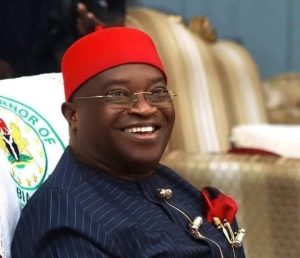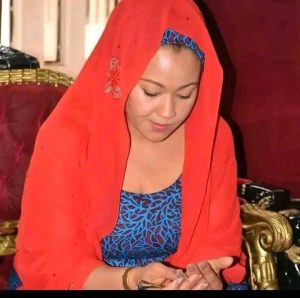DSS Sues Pat Utomi Over Creation of ‘Shadow Government’, Alleges Plot to Usurp Tinubu’s Authority
In a move that has sent political shockwaves across the country, the Department of State Services (DSS) has taken legal action against Professor Pat Utomi, a renowned political economist and former presidential candidate, over his alleged creation of a “shadow government” that the agency claims poses a threat to Nigeria’s constitutional democracy.
The DSS filed a lawsuit at the Federal High Court in Abuja, marked FHC/ABJ/CS/937/2025, asserting that Utomi’s activities, particularly the public unveiling of a parallel ministerial cabinet, are tantamount to a subversive attempt to mimic and usurp the authority of the democratically elected administration of President Bola Ahmed Tinubu. The suit, which names Utomi as the sole defendant, is being led by a legal team headed by a Senior Advocate of Nigeria (SAN), Akinlolu Kehinde.
The secret police allege that the initiative spearheaded by Utomi represents a grave and deliberate assault on the Nigerian Constitution. According to court filings, the DSS contends that only institutions established through constitutional processes and democratic elections are recognized in Nigeria, and any alternative structure attempting to perform governmental functions outside of that framework is both illegal and dangerous to national stability.
In its arguments before the court, the DSS described Utomi’s initiative as an “unregistered and unrecognized body claiming to operate as an alternative government,” a move the agency claims is fundamentally at odds with the supremacy of the 1999 Constitution of the Federal Republic of Nigeria (as amended).
The controversy began when Professor Utomi, who previously contested the presidency under the African Democratic Congress (ADC) in 2007, made headlines by publicly announcing the formation of what he called a “shadow cabinet.” This alternative political structure includes named individuals who were assigned roles analogous to those in an actual government. For instance, the Ombudsman and Good Governance portfolio was reportedly assigned to lawyer and activist Dele Farotimi, while the Policy Delivery Unit consists of Oghene Momoh, Cheta Nwanze, Daniel Ikuonobe, Halima Ahmed, David Okonkwo, and Obi Ajuga. A Council of Economic Advisers was also inaugurated under the umbrella of this shadow government.
YOU MAY READ
EFCC Re-Arraigns Sambo Dasuki and Others Over Alleged N33.2 Billion Fraud
In its affidavit submitted to the court, the DSS emphasized that this public unveiling of a parallel government entity goes far beyond mere political critique or civil society advocacy. Rather, it argued that such a move crosses a constitutional red line. The agency warned that if left unchallenged, the initiative could inspire unrest, provoke ethnic or regional tensions, and potentially encourage separatist groups or other unlawful actors to replicate similar structures, thereby destabilizing the fragile unity of the country.
Citing Sections 1(1), 1(2), and 14(2)(a) of the 1999 Constitution, the DSS maintains that only institutions and authorities established through electoral legitimacy possess the legal right to function as governmental organs. The agency, therefore, seeks a court declaration that Utomi’s so-called shadow cabinet is unconstitutional, null, and void. Additionally, the DSS is requesting a perpetual injunction barring Utomi and his associates from taking any further steps toward instituting or operating a shadow government or any entity not sanctioned by law.
According to the DSS, its core mandate includes preventing threats to national security and preserving the integrity of the constitutional order. It argued that its decision to take legal action stems from intelligence reports indicating that the shadow cabinet formation poses a clear and present danger to Nigeria’s democratic framework. The security agency disclosed that it had made prior efforts to caution Utomi through official channels, including interventions by the Minister of Information, yet those efforts were allegedly met with defiance.
The DSS stated that “the Federal Government of Nigeria has made several efforts to engage the defendant… but the defendant has remained defiant. It is in the interest of justice, national security, and the rule of law for this honourable court to declare the existence and operations of the defendant unconstitutional and illegal.”
As of the time of this report, no date has been set for the hearing of the matter.
The legal and political community has since reacted to the suit with a mix of concern, skepticism, and curiosity. Civil society groups and legal experts are beginning to weigh in on the implications of the DSS’s lawsuit for democratic expression, civic participation, and the limits of political dissent in a constitutional democracy.
Meanwhile, Utomi has not publicly responded to the lawsuit or the specific allegations contained in the DSS court filings. His recent public statements have centered around calls for civic responsibility, accountability in governance, and the need for parallel civic structures to highlight policy failures and propose alternative solutions. Whether the courts will consider such civic activism a constitutional right or a subversive offense remains to be seen.
Reactions have not been limited to legal quarters alone. Omoyele Sowore, the former presidential candidate of the African Action Congress (AAC) and a well-known political activist, was one of the first prominent figures to weigh in on the matter. In an interview on Channels Television’s current affairs programme “Inside Sources,” Sowore questioned the logic and effectiveness of establishing an alternative government that lacks legal authority.
“How do you replace a shadow government with another set of shadowy government?” Sowore quipped during the interview, suggesting that Nigeria’s ruling political elite already behaves like an opaque, unaccountable entity. He clarified, however, that he harbors no resentment toward any initiative aimed at increasing political consciousness or offering the public a model of accountable governance. “I will not begrudge anybody who provides a solution that can bring awareness to the people to the point that they are pushed to do something about their social, political, and economic conditions. But I do not think that setting up a government with names of people who called themselves a shadow government makes any difference,” Sowore concluded.
Utomi’s supporters argue that his initiative is no more than a symbolic and non-governmental body aimed at encouraging public debate and pushing for policy accountability. According to them, such structures are common in advanced democracies, particularly within parliamentary systems where opposition parties often set up shadow cabinets to monitor, critique, and propose alternatives to government policies. However, critics counter that Nigeria’s constitutional framework does not support such practices, especially when they purport to simulate executive authority in ways that might mislead the public or create confusion about the source of legitimate power.
This latest confrontation between the DSS and Pat Utomi underscores broader tensions in Nigeria’s evolving democratic journey. It raises fundamental questions about the boundary between legitimate political activism and unconstitutional conduct, about the role of the state in policing dissent, and about how far the security establishment can or should go in safeguarding the integrity of the constitutional order.
Legal experts have begun dissecting the possible outcomes of the case. Some argue that the DSS’s case could set a legal precedent that further restricts civic engagement and political expression, particularly in a country where opposition voices often find it difficult to gain traction in mainstream governance. Others contend that the courts must consider the broader implications for national security and the prevention of parallel power structures that could potentially destabilize democratic governance.
As the case proceeds, public attention will be fixed on the Federal High Court in Abuja. It remains to be seen whether the court will side with the DSS in declaring Utomi’s shadow cabinet unconstitutional, or whether it will view the formation of such a body as part of the constitutional right to free speech and political participation.
Analysts are also examining the political timing of the suit. Coming less than two years into President Tinubu’s administration, some see it as part of a broader clampdown on dissent, especially as public dissatisfaction grows over economic hardship, insecurity, and governance failures. Others suggest it could be a strategic move to send a strong message to political actors who might consider forming parallel structures that mimic state authority.
Furthermore, the case reopens debate about the role and scope of the DSS itself. While the agency is mandated with protecting national security, it has frequently been criticized for overreaching its powers and stifling opposition. The balance between security and civil liberty remains one of the most contentious issues in Nigeria’s democracy.
For Utomi, the lawsuit represents yet another chapter in a long career marked by political activism, academic distinction, and reformist ambition. Whether he views the legal challenge as a threat or an opportunity to test the boundaries of constitutional engagement remains unclear. His silence so far may be strategic, or it could be in anticipation of a legal response.
As Nigeria watches with keen interest, the coming weeks will determine not only the outcome of the case but perhaps the direction of the country’s democratic resilience. Will the courts reaffirm the supremacy of state-sanctioned governance structures, or will they defend the rights of citizens to form political alternatives, no matter how symbolic? That decision could have long-term consequences for the nation’s political culture and constitutional development.
The proceedings also serve as a litmus test for President Tinubu’s administration. By allowing the security establishment to pursue the matter through legal channels rather than extrajudicial measures, the government signals its preference for institutional responses over repression. However, it must also be wary of the optics of using state power to silence opposition, especially in a democracy still striving for maturity.
For now, the nation waits. Pat Utomi, once again at the center of national discourse, has unintentionally reignited the conversation about alternative governance, civic responsibility, and the right of citizens to imagine a different future. Whether that imagination is deemed constitutional or not, is now a matter for the courts to decide.





